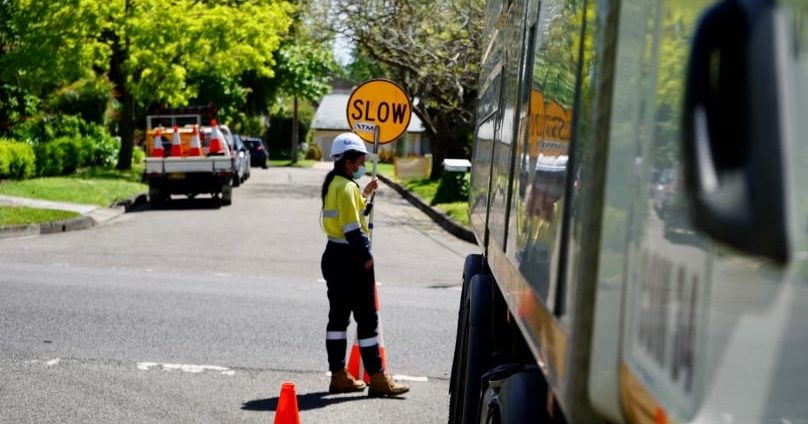Every day, millions of people around the world take to the roads to commute, travel, and transport goods. With such a large volume of vehicles on the road, ensuring safety and order becomes paramount. This is where traffic controllers play a crucial role. These unsung heroes work tirelessly to keep traffic flowing smoothly and to prevent accidents. But what exactly goes into becoming a traffic controller, and why are traffic controller courses so important? In this article, we will look at the significance of traffic controller courses in maintaining road safety.
The Basics Of Traffic Control
Traffic controllers are in charge of keeping cars and people on foot moving smoothly at intersections, building sites, and other places where traffic could get backed up or dangerous. They use hand signals, flags, and traffic control devices to guide drivers and pedestrians safely through these areas. First and foremost, the goal is to keep traffic moving smoothly and safely.
The Importance Of Proper Training
To become an effective traffic controller, proper training is essential. This training is not only important for the safety of the traffic controller but also for the safety of all road users. Here are some key reasons why traffic controller courses are crucial:
1. Safety First: The safety of traffic controllers is of paramount importance. They often work in close proximity to moving vehicles and heavy machinery. When they get the right training, they learn how to keep themselves and others safe from possible dangers. They learn how to assess risks, use safety equipment, and make informed decisions in high-pressure situations.
2. Efficient Traffic Flow: Efficient traffic flow is not just about convenience; it’s a matter of safety. Traffic jams and congestion can lead to frustration and impatience among drivers, which can result in risky driving behaviours. Traffic controller courses teach professionals how to manage traffic effectively, reducing the likelihood of bottlenecks and traffic-related incidents.
3. Understanding Traffic Laws: People who work as traffic managers need to know all the rules and laws about traffic. They need to know how to apply these laws to different situations and make informed judgments. Training ensures that they are well-versed in local traffic regulations and can enforce them when necessary.
4. Communication Skills: Effective communication is a critical skill for traffic controllers. They need to be able to easily and clearly tell drivers and pedestrians what to do. Courses help them develop these communication skills, ensuring that they can effectively direct traffic and handle challenging situations.
5. Adaptability: Traffic controllers often work in dynamic environments where conditions can change rapidly. Proper training teaches them how to adapt to different situations, whether it’s responding to emergencies, unexpected road closures, or adverse weather conditions.
6. Conflict Resolution: In some situations, traffic controllers may encounter frustrated or aggressive drivers. They learn how to handle disagreements in training so that they can keep the peace on the road.
7. Public Safety: Ultimately, the role of traffic controllers is to ensure public safety. By receiving comprehensive training, they contribute to reducing the number of accidents and injuries on our roads. Their presence and expertise are especially critical in construction zones, school zones, and at busy intersections.
8. Legal Compliance: In many regions, there are legal requirements for individuals to undergo specific training and obtain certifications to work as traffic controllers. If you don’t meet these standards, you could face legal trouble. Traffic controller courses ensure that individuals are in compliance with these regulations.
Conclusion
Traffic controller courses are not only essential for the safety of traffic controllers themselves but also for the safety of everyone on the road. People who take these classes learn the information and skills they need to handle traffic well, keep accidents from happening, and make sure that vehicles can move smoothly. Without well-trained traffic controllers, our roads would be far more chaotic and dangerous.
As we navigate our daily lives, let’s not forget the tireless efforts of these dedicated professionals who work behind the scenes to keep us safe on the road. Traffic cops work hard and are trained to keep everyone safe. They are an important part of making our transportation system safer, more efficient, and more organised.



